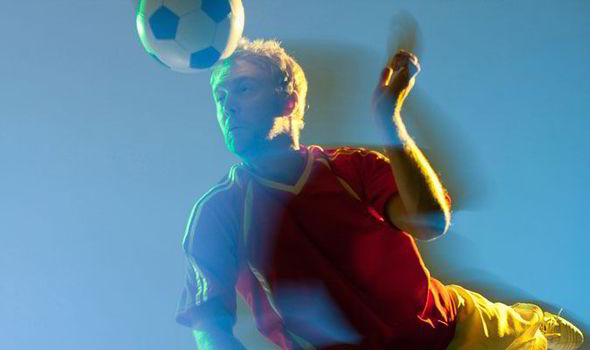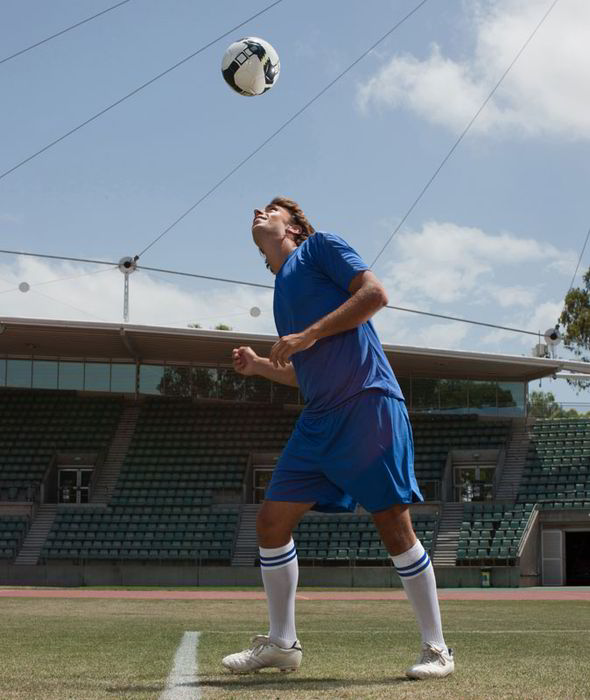
FOOTBALL may not be considered the most dangerous of sports, but heading a ball can leave players with severe brain abnormalities and memory loss, a study has found.
Researchers in the US studying the brains of 37 amateur adult football players undertook tests to identify microscopic changes to the brain's white matter, which consists of billions of nerve fibres.
"We chose to study football players, because it is the most popular sport worldwide," said study leader Dr Michael Lipton, from the Albert Einstein College of Medicine in New York.
"It is widely played by people of all ages, including children, and there is significant concern that heading the ball - a key component of football - might cause damage to the brain."

Heading a football leaves the brain injured, researchers have said
The researchers, who estimated how often each player headed the ball on an annual basis, examined the state of players' white matter.
The shocking results showed levels normally associated with mental impairment in patients with traumatic brain injury.
"The brain findings of the most frequent headers in our study showed abnormalities of white matter similar to what we've seen in patients with concussion," said Dr Lipton.
Players who headed the ball more than 1,800 times a year were also more likely to score poorly in memory tests, the tests showed.
Dr Lipton added: "What we've shown here is compelling initial evidence that there are brain changes that look like traumatic brain injury which are associated with heading a soccer ball with high frequency.
"Further research should be a priority. In the meantime, controlling the amount of heading that people do may provide an approach for preventing brain injury as a consequence of heading."

No comments:
Post a Comment